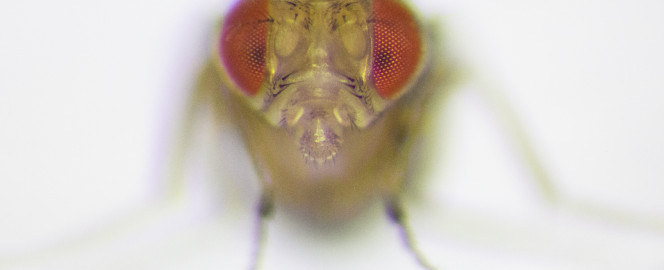To resolve the mechanisms that switch competition to cooperation is key to understanding biological organization. This is particularly relevant for intrasexual competition, which often leads to males harming females. The romantic notion of sexual reproduction as a cooperative endeavour has been shattered by a host of studies depicting how male-male competition often leads to female harm, resulting in sexual conflict among the sexes. To males, females are an essential but finite resource over which they have to compete against other males, and hence sexual harm to females can be seen as a ‘reproductive tragedy of the commons’ that can potentially reduce population productivity to the point of extinction . However, social conflict and cooperation are two extremes of a continuum and a current mayor challenge in evolutionary biology is to resolve the evolutionary pressures that push populations along it. Recent theory proposes that one such pressure is kin selection, which may modulate female harm by relaxing competition among male relatives.
In a paper published last week in Nature (Carazo et al. 2014. Nature, 505, 672-676) we use Drosophila melanogaster to provide the first empirical demonstration that kin selection can modulate the intensity of sexual conflict and significantly impact female fitness and male/female ageing. Females kept in groups of related brothers aged more slowly and had a higher lifetime reproductive success that females raised in groups of unrelated males. The signature of sexual conflict was evident in that males kept with brothers courted females less intensively, fought less among them and, as a consequence, lived longer than males kept with unrelated males. Sexual competition among relatives can happen under a wide range of ecological situations that are frequent in nature, such as spatially viscous populations and species in which males do not disperse, mate before disperse, or disperse with kin. Hence, kin selection may offer important insight into our understanding of the evolution of sexual conflict and cooperation in structured populations. See also Scott Pitnick and David Pfennig’s nice comment of our paper in News & Views (Pitnick & Pfennig. 2014. Nature, 505, 626-627).


